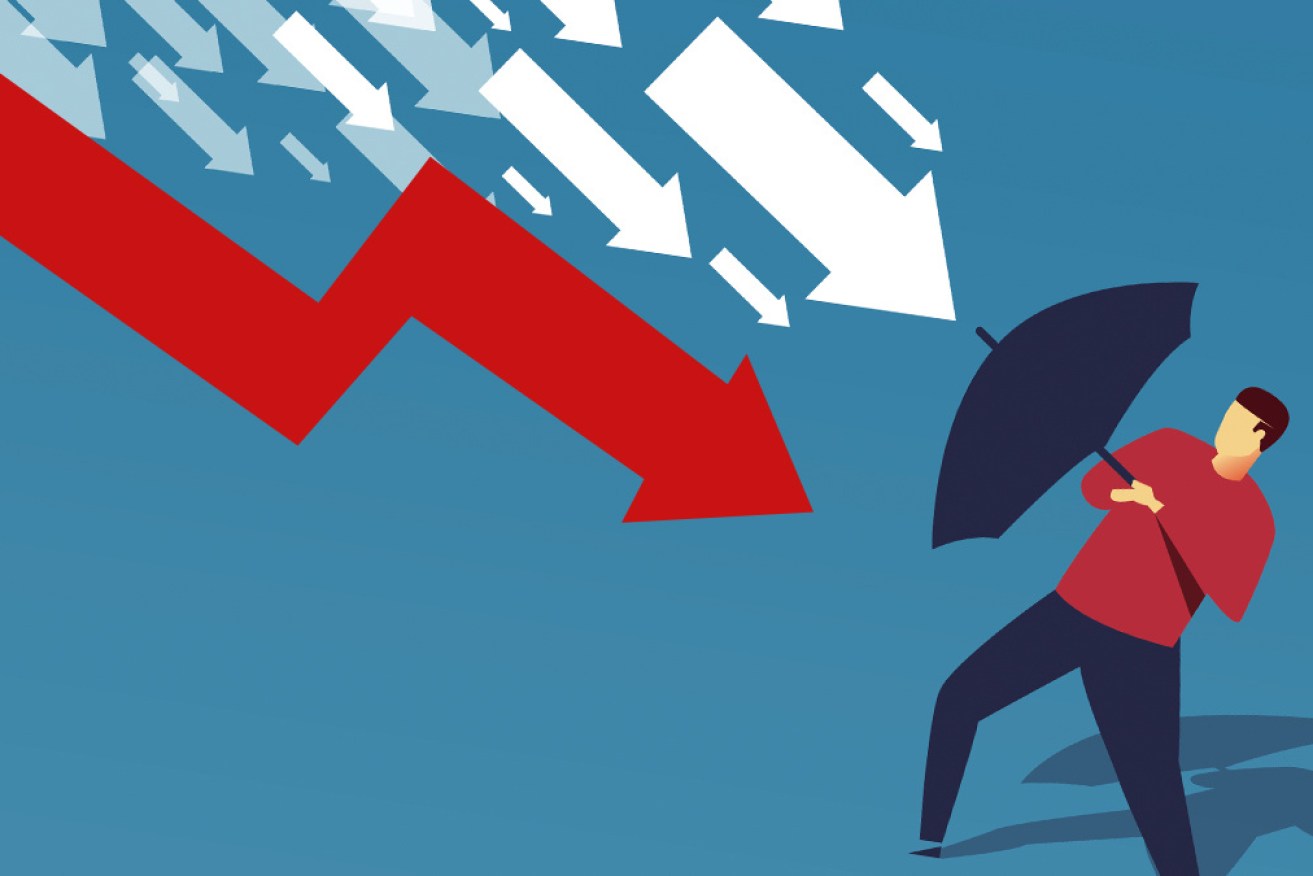How Australians can recession-proof their finances


The government is trying to wrest Australia away from recession. Here's how to weather any future storm. Photo: TND
Scott Morrison’s decision to unleash $17.6 billion to stimulate the Australian economy points to his government’s burning desire to desperately avoid a recession.
Australia’s last ‘technical recession’ (measured as two consecutive quarters of negative GDP growth) was 28 years ago, before the country embarked on a world-beating economic expansion.
Now some economists believe we’re “halfway” to a future recession, spurred by the stock market’s three-week downward spiral, rising unemployment and the virus outbreak.
Australians may feel worried about shoring up their finances in these uncertain economic times. So The New Daily asked a number of financial planning experts how Australians can best protect them.
Figure out your ‘number’
Matthew Hawkins, director of Elevate Wealth Solutions, says Australians can determine their unique ‘number’ to ensure they live within their means during a recession.
Essentially, it’s how much an individual or family requires to account for basic living expenses like water, electricity and food, without frivolous purchases like new cars or holidays.
Mr Hawkins says once that number is established, people can then create long-term plans to combat a period of economic downturn, and figure out how much disposable income they have.
“Using things like the MoneySmart budget calculator enables you to put in all your expenses and help you understand the minimum amount you require to subsist,” Mr Hawkins said.
Managing director of Noall & Co Marc Bineham believes that if in a position to do so, Australians should set aside a safety net to minimise harm in the event of a sudden job loss.
“The average Australian has less than one month saving of income,” Mr Bineham said.
“So if the worst happens, they have a months’ savings to look after, which is definitely not near enough. They should have somewhere between three to six months worth of savings in a rainy day account.”
Remove any non-essential expenses
AMPD Research found the average household pays $35 per month for subscription video on demand (SVOD) services, while 2018 research by finder.com.au showed UberEats users spend $1590 annually on average.
Mr Hawkins said Australians struggle to comprehend just how much of their annual income is eaten up by direct debit services until they print off their bank statements.
“Those luxury items like Spotify, Netflix, Stan and the like? These add up,” Mr Hawkins said.
“Also trying to reduce your expenses, so shopping around so you can get better rates on your loans, better prices on your home and contents insurance, better prices on your health insurance are great ways to save.
“And it’s amazing what little changes can have when they compound over four or five items over a 12 month period.”
If you’re experiencing hardship, talk
Australia’s last recession led to double-digit unemployment, and with a growing reliance on the gig economy and workforce casualisation, there’s a high chance more Australians could soon be unemployed.
Financial Counselling Australia CEO Fiona Guthrie told The New Daily Australians who find themselves out of a job should speak with creditors and financial counsellors sooner, rather than later.
“They (creditors) have a legal obligation – if you’re a bank or a telco or energy retailer – to offer a financial hardship provision,” Ms Guthrie said.
“And you can talk to our helpline in terms of what not to do, because it’s so easy in the spur of the moment to click on a link and get a short-term, high-cost payday loan or even buy-now-pay-later services (e.g. AfterPay).
“Because they’re just recipes of disaster, and people get trapped with ongoing debt.”
Have faith in your plan — and don’t panic
Despite Friday’s dramatic trading day that saw the ASX 200 close 4.4 per cent higher, Australia is in the throes of a bear market, dipping more than 20 per cent since February 20’s high.
But investment advisors say Australian investors should be focussed on the long-term dividends of staying involved in the market.
Multiforte director Kate McCallum says stock markets are an intersection of economics and emotion – and right now, emotion’s driving the market’s fortunes.
“Unfortunately markets are unpredictable, so it makes sense for us to say let’s sit in cash and wait until it’s more comfortable and let’s invest again,” Ms McCallum said.
“But the price you pay for certainty is a very low return. So it you want the returns that capital markets offer over the long term, you’ve actually got to weather the storm.
“Upticks happen almost as quickly as some of the downturns like [Thursday’s], so if you’re not invested and you miss that day, then that’s gone because you’re not invested in the market.”








